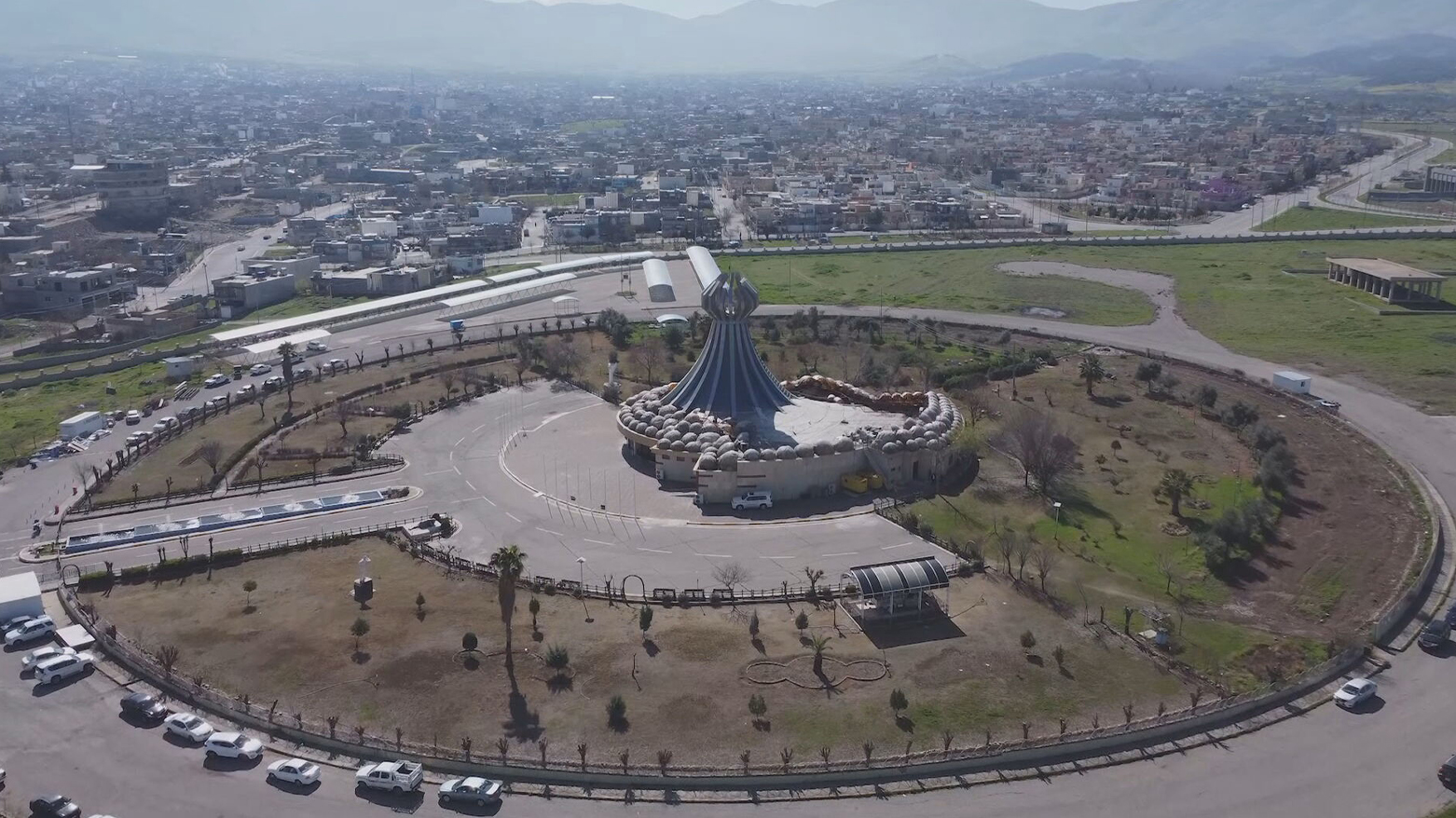Halabja Reports Fewest Cases of Domestic Violence
Halabja, the city synonymous with the 1988 chemical genocide, now records the fewest cases of domestic violence in the Kurdistan Region. Officials attribute this to strong social values, a favorable family environment, and the economic partnership of women in a story of profound resilience.

ERBIL (Kurdistan24) – To utter the name Halabja is to invoke a memory of profound tragedy, of a sky that once rained death and a silence that followed, broken only by grief. It is a name etched into the Kurdish soul as the ultimate symbol of genocide. Yet, from the ashes of this history, a different story is now emerging—one of such profound resilience that it challenges the very definition of the city's legacy.
In a remarkable testament to the strength of its community, the province of Halabja now records the fewest incidents of domestic violence and the lowest rate of divorce in the entire Kurdistan Region, cultivating a culture of peace in the very soil that once bore witness to unimaginable horror.
This extraordinary social indicator, which stands in stark and poignant contrast to the city's harrowing past, was confirmed by Burhan Ahmed, the Director of the Directorate for Combating Violence Against Women and Children in Halabja.
In an interview with Kurdistan24 on Friday, he explained that a unique set of social dynamics has rendered the province a model of domestic stability.
"In Halabja province, compared to other cities and towns, the rate of complaints, criminal cases, and domestic violence is lower," Ahmed stated. He attributed this not to a single factor, but to a confluence of deeply held principles.
"This is due to the favorable family environment in the region. Additionally, within families, great importance is given to social values, which are strongly upheld." The director pointed to a tangible decrease in reported cases, noting that while 68 cases were recorded in 2023, that number fell to 53 last year.
Ahmed also highlighted a key socio-economic factor that he believes is a cornerstone of this social health: the active and visible role of women as economic partners.
"It is more common for both husbands and wives to work in this region compared to other places," he observed. "Women are significant partners to their families in securing a livelihood."
This culture of partnership and shared responsibility, he suggests, fosters a more equitable and stable family life, contributing directly to the low rates of both domestic violence and divorce. Indeed, the sight of women working alongside men, particularly in the region's thriving agricultural sector, is a defining feature of modern Halabja's identity.
This deep-seated respect for women and the value placed on their contributions may have roots that run deeper than modern economics, tapping into a long and storied history of formidable female leadership that has defined the region for centuries.
As documented by Avaunt Magazine, more than a century ago, Halabja was transformed from a humble village of mud huts into a flourishing trade center under the rule of Lady Adela Khanum, the revered chief of the Jaff tribe and arguably the most important woman in the Islamic world at the time.
Described by the British officer and spy Ely Banister Soane as having a face with "firmness of every line," Lady Adela was a talented urban planner and a shrewd entrepreneur who commissioned fine Persian-style buildings, established a new bazaar, and presided over a court of justice, bringing order to a region plagued by anarchy.
Her legend, a forceful reminder of what the Kurds were able to achieve when left to their own devices, is part of the cultural DNA of a city that continues to value the contributions and leadership of women.
This historical context of strength and resilience provides a powerful backdrop to Halabja's modern-day revival. The journey from devastation to social health has been underpinned by a parallel story of political and economic renewal.
A landmark moment in this journey came in April 2025, when Iraqi President Latif Rashid officially signed into law the establishment of Halabja as Iraq’s 19th province.
As previously reported by Kurdistan24, this long-awaited recognition was more than symbolic; it was a crucial step toward securing the administrative, developmental, and financial entitlements necessary for the province's full recovery.
This political progress has been matched by a vibrant economic and cultural renaissance on the ground.
The province, renowned for its fertile lands and rich agricultural heritage, has seen a remarkable boom, with a majority of its agricultural workforce being female. This economic empowerment directly supports the observations made by Burhan Ahmed about the low rates of domestic violence.
The iconic Halabja pomegranate, celebrated for its exceptional quality, has found lucrative export markets, and a new weekly agricultural market successfully connects over 100 local farmers directly with consumers, bolstering the local economy.
Simultaneously, Halabja is leveraging its unique cultural and natural beauty to attract a growing number of visitors, with its 36 tourist destinations now welcoming nearly one million visitors annually.
In a move to strengthen Kurdish identity through this growing industry, the Kurdistan Region’s Tourism Board has issued new directives requiring all tourist sites to prominently feature local products and Kurdish handicrafts, ensuring an authentic cultural experience for visitors.
While the scars of the 1988 chemical attack may never fully fade, and the search for the 211 children who went missing in the chaos of that day continues, the Halabja of today is a testament to the indomitable spirit of its people.
The community's ability to cultivate a "favorable family environment" and uphold strong social values in the shadow of such profound trauma is a powerful story of human resilience.
Kurdistan24's News Writer Shorsh Harki contributed to this report.